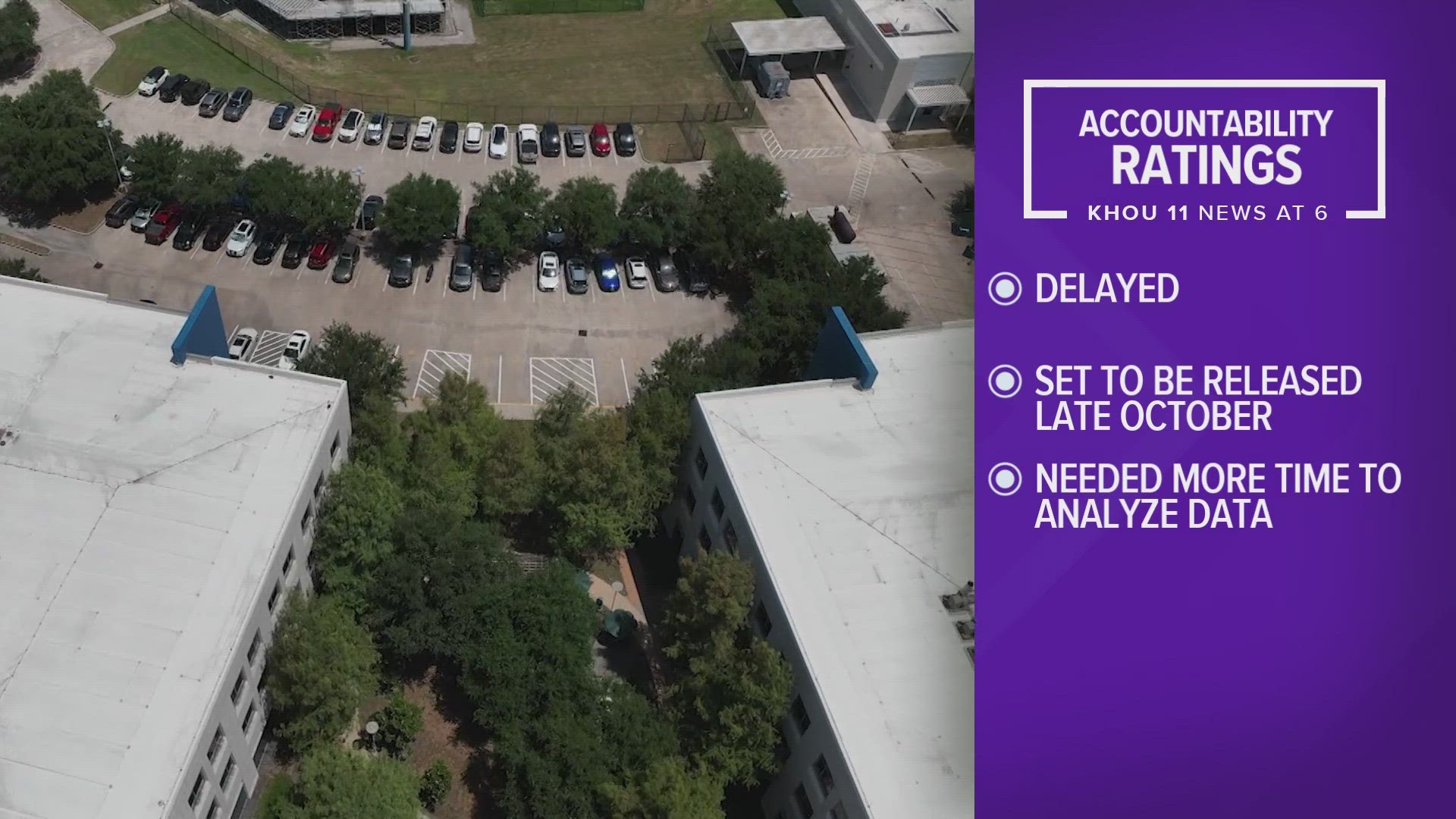AUSTIN, Texas — The Texas Education Agency said it will delay the release of its A through F school accountability ratings.
The TEA was supposed to release the reports on September 28, but the agency says it needs more time to analyze its data, specifically the data showing how much a student has learned over the school year.
“Maintaining high expectations helps guide our efforts to improve student learning and support,” Texas Education Commissioner Mike Morath said in a statement announcing the delay. “The A-F system is designed to properly reflect how well our schools are meeting those high expectations, and the adjustments we are making this year will ensure it continues to serve as a tool for parents and educators to help our students.”
It will now be released in late October. Several school districts, including Spring Branch ISD, filed a lawsuit over the new ratings and in a statement to KHOU 11, the Texas State Teachers Association says it still wants the TEA to scrap the changes altogether.
Below is the full statement from the Texas State Teachers Association
"Education Commissioner Mike Morath announced today that the Texas Education Agency is delaying the release of the new A-F school accountability ratings for about a month. They were originally scheduled for release on Sept. 28.
We hope the commissioner will abandon his plans to unfairly change the rules in the middle of the game. He earlier indicated he would retroactively raise the passing scores for one key element in the ratings — the college, career and military readiness of a school district’s high school graduates. The significant increases he planned for those standards would have the effect of lowering the accountability letter grades for many districts.
This announced change is so unfair that numerous school districts have sued the commissioner. TSTA also strongly opposes that kind of change, and we oppose any other changes that would affect the accountability ratings this late in the process.
Tinkering with accountability ratings is made even worse by the fact that Texas still woefully underfunds our public schools, spending more than $4,000 less per student than the national average. The legislative majority failed to raise the basic funding allotment for districts during the regular session this year, and now Gov. Abbott is preparing to call a special session to try to force lawmakers to spend untold millions of tax dollars on private school vouchers. The governor and his allies need to get their priorities straight.
Evaluating the performance of school districts is important. But performance targets must be set in advance and not be changed by the state after a school year has been completed and many students already have graduated.
The state also must find a more meaningful evaluation system for our schools, one that is no longer dominated by STAAR test scores, which also still play a major role in determining accountability scores."

